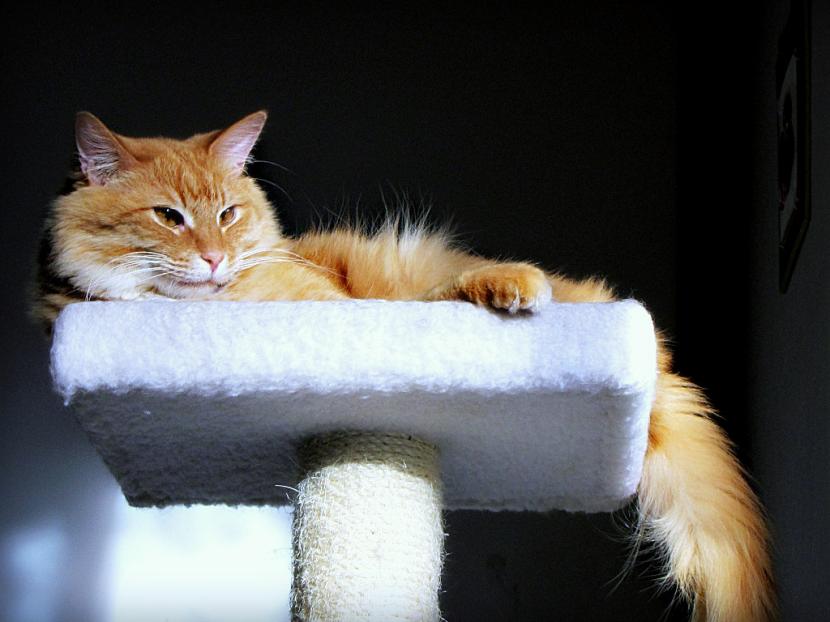
Often the first thing we think of when we see that our furry scratches is that it has fleas, ticks or other insects, but the truth is that this is not always the case. In the same way that it can happen to us humans, the skin can become dry or irritated for various reasons.
With this in mind, if you are wondering what to do if my cat has irritated skin, Then I will offer you several tips that will be very useful to make your friend feel calm again.
What are the causes?
When inflammation of the skin occurs, known as dermatitis, it usually occurs due to:
- Infectious causes:
- Parasites (fleas, ticks, mites)
- Mushrooms
- Virus
- Bacteria
- Non-infectious causes:
- Immune system disorders (allergies or feline eosinophilic granuloma)
- Sun damage
- Tumors
- Chemical products
- Drug reactions
- Stress
- Traumas
- Hyperthyroidism
- Diabetes
- Hepatic diseases
- Feline Immunodeficiency Virus (FIV)
- Feline Leukemia Virus (FeLV)
- Painful underlying disease, such as lower urinary tract disease
- Badly adjusted collar
- Strange bodies
What are the symptoms?
Symptoms of feline dermatitis are the following:
- Excessive scratching
- Crusting or scaling
- Baldness
- Changes in skin color
- Matted hair, and dull
- Shakes his head or scratches his ear
What is the diagnosis and treatment?
If the cat shows one or more of the symptoms mentioned above, we will have to take him to the vet. Once there, they will do a physical exam, and if necessary, a blood and fecal test to find out if you have parasites or any microorganism that is harming you. In the case of suspecting a food allergy, we will recommend making a change in the diet (cereal free).
Treatment for itching will depend on the cause, but it is usually advised:
- Putting an antiparasitic treatment
- Ensure that the animal lives in a safe and quiet home
- Apply calendula cream or tincture to the skin
- Give him a quality diet, without grains or by-products

I hope it has been useful to you 🙂.